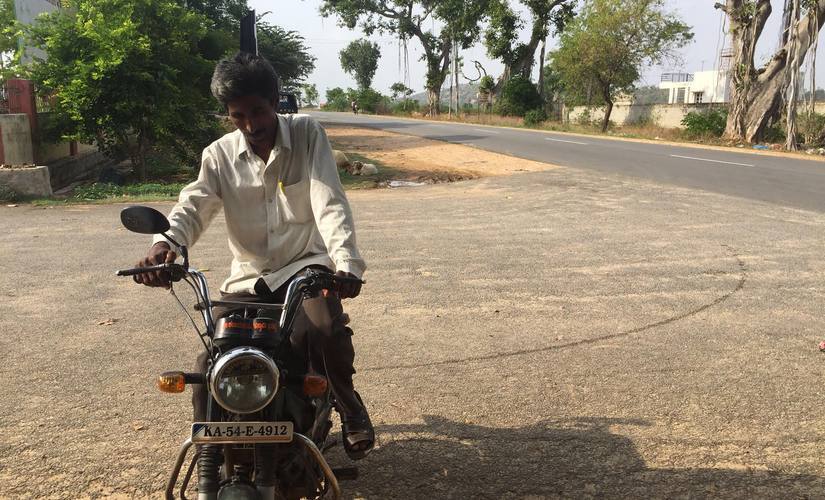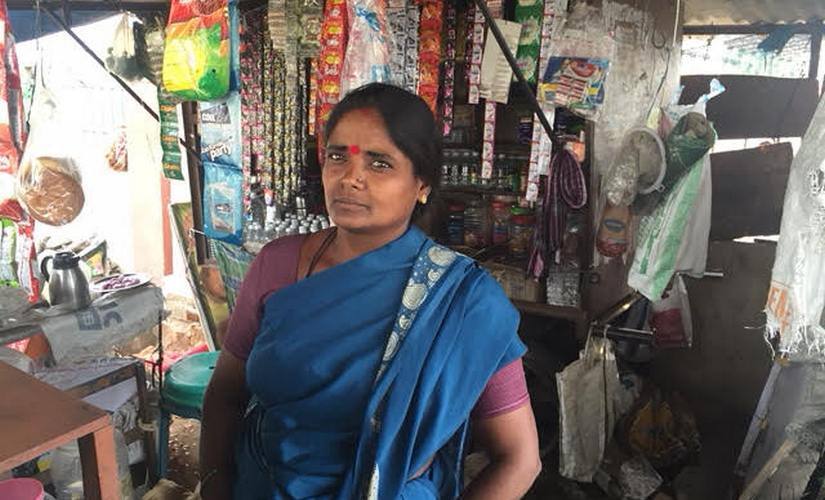Narasimha Raj, 41, says he will not vote for the same party in the upcoming Karnataka Assembly elections. But the vote will still go to the same candidate. A farmer, hailing from the village of Halathi in Mandya district, Narasimha’s constituency is Nagamangala, where 3-time MLA Chaluvarya Swamy has defected from the Janata Dal (Secular) to the Congress. “I have always voted for Swamy,” says Narasimha. “He has been accessible, and ensured development through roads, hospitals in the constituency. I will vote for him irrespective of the party. Now that he is in Congress, I will press the Congress button on 12 May.” Interestingly, Narasimha does not harbour much affection for the sitting chief minister Siddaramaiah. “He is casteist, and will work only for certain communities,” he says. “He has gone out of his way to appease Lingayats, but does not care for us Vokkaligas.” Nagamangala is dominated by the Vokkaliga community, like the old Mysore region it falls in. It is the foremost peasant caste of old Mysore. 50 MLAs across parties in the current Assembly are Vokkaligas. It has been a core vote base of the JD(S). Its patriarch Deve Gowda, and his son and party leader HD Kumaraswamy, also hail from the same community. [caption id=“attachment_4455705” align=“aligncenter” width=“825”]  Narasimha Raj, a farmer from Mandya district. Parth MN[/caption] Vokkaligas in this belt are miffed with Siddaramaiah, for they believe he has favoured his own Kuruba community, along with Scheduled Castes, Schedule Tribes, OBCs and Muslims, in important posts in the bureaucracy, while ignoring the Vokkaligas. In Nagamangala, almost half of the 2 lakh voters are Vokkaligas, with SCs, STs and Kurubas – the largest OBC group in the state – being the other important communities. Most of the Vokkaligas remain loyal to JD(S) and Kumaraswamy. Lakshamma, 42, says the candidate does not matter when she goes to polls. “Kumaraswamy is our leader,” she says. “We want to see him as the chief minister. He works for the poor.” Lakshamma, who sells vegetables in Nagamangala town, says she does not like Modi for the precise reason. “He took us apart with demonetisation,” she says. “I used to make 1500 rupees a day. After demonetisation, it came down to 200 for about 6-8 months. Only I know how I managed during that period.” An overwhelming majority in Nagamangala, like most of the old Mysore region, are farmers, and the rest own petty businesses, shops and bakeries. And most of the Vokkaligas have a different opinion of Modi than Lakshamma’s. SR Krishnamoorthy, 31, a farmer cultivating veggies and coconuts in Samakahalla village, says he voted for the BJP in the 2014 general elections only because of Modi. In fact, in 2014, BJP had bettered the JD(S) and Congress in terms of the Vokkaliga voteshare. “Modi is good at the Centre,” says Krishnamoorthy. “He is hardworking, and is a task master. But BJP is not even in the race here. Kumaraswamy is our community’s pride. We will always vote for him at the state. When he was the chief minister of Karnataka in 2006, he worked for farmers. Even now, he is promising loan waivers if he comes to power.” Just outside the APMC in Nagamangala, selling tea and biscuits, Meenakshi, 35, leans more towards Narasimha’s line of thought. For her, the candidate is more important than the party. “After all, it is the MLA that is directly accountable to you,” she says. “You cannot knock the chief minister’s door for water in your constituency. Swamy has a connect with us for a long time. He knows us. He knows the constituency.” [caption id=“attachment_4455707” align=“aligncenter” width=“825”]  Meenakshi, who sells tea and biscuits in Nagamangala. Parth MN[/caption] In spite of the fact that most of the dominant community is likely to stay with JD(S), over the past 15 years, Swamy, himself a Vokkaliga, seems to have cultivated his own support base that might go with him despite the anger against the incumbent chief minister. Even if Swamy takes a significant chunk with him, he could limp across the halfway mark with other communities majorly backing the Congress. Swamy is one of the seven rebel JD(S) MLAs that defected to the Congress after cross-voting in Rajya Sabha elections of 2016. Zameer Ahmed Khan, Iqbal Ansari, Balakrishna, Ramesh Bandisiddegowda, Bheema Nayak and Akhanda Srinivas Murthy were the other six. It is said that BM Farooq’s JD(S) candidature for the Rajya Sabha was not discussed with the MLAs, and Zameer, particularly, was upset at the proposition, and he was the one who instigated others to cross-vote for the Congress instead. Srinivas Murthy, speaking to Firstpost, said, “Zameer is our leader, we followed him.” Both Zameer and Murthy are MLAs from Bangalore. Zameer, three-time MLA from Chamrajpeth, is said to be a king of his constituency. A moneyed man with his own travel company, Zameer has a hold on his constituency that predominantly comprises of Muslims. The staff at the Victoria hospital in his constituency says he is the first one to arrive in case of any emergency that requires intervention. Murthy, too, is a two-time MLA from Pulakeshinagar, and used to be with the Congress earlier. People in his constituency are with his ghar wapsi. Ashwaq Khan, selling lime juice in the busy vicinity of Devara Jeevanhalli, says, “Murthy is a Congressman at heart. Even his father was with Congress for a very long time. It does not really matter what party he represents.” Murthy, himself, is confident about the outcome. “I have been working in the constituency even when my party was not in power at the state,” he said. “It is easier to develop the constituency when one is in a party that rules the state.” The narrative is not very different in Bandisiddegowda’s constituency of Srirangapatna in Mandya. This constituency has a similar demography to Nagamangala and Bandisiddegowda has been a two-time MLA here. 40-year-old Kantaraj, who sells sugarcane juice in the town, says he is confused about who he is going to vote for. “I like Kumaraswamy, but I feel a kind of loyalty with Bandisiddegowda,” he says, refusing to be photographed. “He has been a good public servant, and also supported the temple over here. I would not want to desert him.” The upcoming elections are a battle of existence for the JD(S). The party has had two back-to-back dismal performances in the Assembly elections of 2008 and 2013, where it won 28 and 40 seats respectively. While it, by and large, retains its loyal Vokkaliga vote share, losing seven MLAs to the Congress is surely a jolt to the party. It may not look like a large number in isolation but seven out of 40 is significant in the context of fighting for relevance. For all their fallacies, they are sitting MLAs, who have nurtured their constituencies over a significant period of time, and they know how to win an election.
While the JD(S), by and large, retains its Vokkaliga vote share, losing seven MLAs to the Congress is a jolt, especially as it is fighting for relevance.
Advertisement
End of Article
Written by Parth MN
Parth MN is a freelance journalist based in Mumbai. He predominantly covers agriculture along with politics and current affairs. He has been awarded the Lorenzo Natali Media Prize by the European Commission. see more


)
)
)
)
)
)
)
)
)



